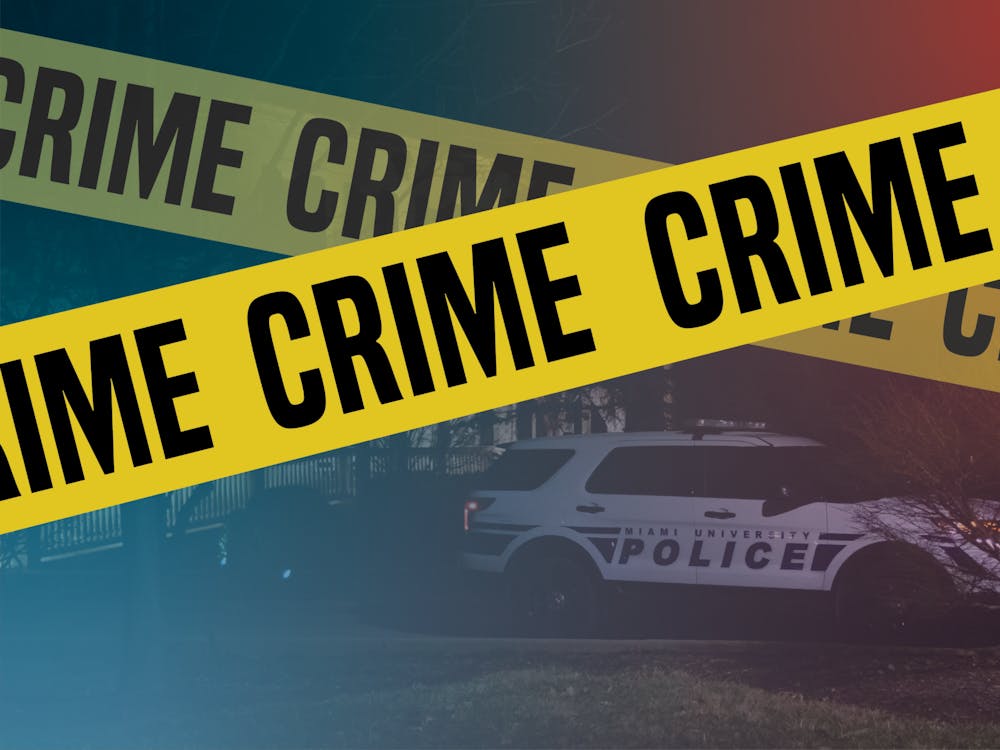The student body has grown accustomed to receiving emails from the Miami University Police Department (MUPD) reporting various crimes throughout the semester. However, this semester students have received fewer safety bulletins relating to sexual assault and harassment.
A Sept. 24 safety bulletin reporting a fondling incident marks the first of the semester related to sexual assault; a noticeable change from previous semesters when, at times, multiple sexual assault bulletins were sent out each week.
But this decrease in safety bulletins doesn’t necessarily indicate a decrease in sexual assault on campus.
A safety bulletin is not sent out for every reported incident. MUPD only issues safety bulletins if there is a continued threat to the campus community.
The MUPD Annual Security and Fire Safety Report provides crime-related statistics for academic years 2018 through 2020.
MUPD received 28 total reports of rape and nine fondling incidents in 2018. In 2019, the department received 32 rape and five fondling reports, the highest of recent years. During the 2020 academic year, 23 rapes and two fondlings were reported.
Since August, MUPD has received seven reports of sexual offenses occurring on campus.
Jaymee Lewis-Flenaugh, assistant dean of students and deputy Title IX coordinator, works with colleagues and students to develop prevention and response efforts.
Lewis-Flenaugh stressed the prioritization of student voices and ideas in her work and taking steps to mitigate further trauma following a report.
“When we are coming to make these decisions, we actively choose not to engage a group without student voice because there is time and distance for us [faculty and administration] when it comes to this type of experience,” Lewis-Flenaugh said. “And our student body is incredible, to be advocates for the people that they represent.”
Lewis-Flenaugh serves as the chair of the response subgroup within the Coordinated Community Response Team (CCRT), a committee of faculty, MUPD representatives, Oxford Police Department (OPD) representatives, students and community members. The CCRT meets twice a month to discuss, plan and carry out initiatives to combat SIV on campus.
Lewis-Flenaugh said the subgroup aims to make sure people know where to report and what happens after they report.
Enjoy what you're reading?
Signup for our newsletter
Professors, resident life staff and administrators are mandatory reporters, meaning they must file a report if a student discloses an incident or assault to them. Survivors can also report to MUPD or OPD.
Reporting a sexual assault provides survivors with resources as well as potential academic, residential, or employment accomodations. Survivors are also given the choice whether or not to pursue a legal investigation.
However, students like senior political science major Shams Al Khafaji remain concerned about safety and security on campus.
“As a woman of color, this campus has been far from safe” Al Khafaji said. “My peers and I have had numerous uncomfortable and uninvited experiences on this campus, and the lack of action from the university is disheartening.”
Al Khafaji said the low number of bulletins this semester is indicative of another problem on campus.
“This does not mean that people are not being sexually harassed [or] assaulted,” Al Khafaji said. “It just means that students feel unsafe to report them.”
The term “fondling” in the recent safety bulletin also sparked frustration for Al Khafaji.
“It is sexual assault, call it what it is,” Al Khafaji said. “I cannot properly express the amount of anger and disappointment I felt when I saw it was regarded as ‘fondling.’ Reporting it as ‘fondling’ or ‘groping’ does not make the fact that a student was sexually assaulted any better.”
The Rape, Abuse and Incest National Network includes incidents of fondling or unwanted sexual touching under the definition of sexual assault.
Al Khafaji was not alone in this sentiment.
Josie Carter, junior psychology major and founding president of Sexual Assault Survivor Support (SASS), was also disappointed in the recent bulletin.
“Language like that downplays and normalizes men touching women and just brushes these events off,” Carter said.
Despite this, Carter is hopeful.
“Change is slow when you’re dealing with a cultural issue,” Carter said. “But I think if we have the right people in administration and student groups [are] being supported there definitely can be change.”
Carter said Miami isn’t alone in struggling to address sexual assaults and room for improvement remains.
“There is still a lot of victim blaming attached to the issue,” Carter said. “The university and community need to be more trauma informed and learn how to be a better ally to survivors.”




